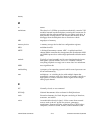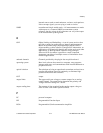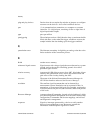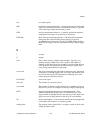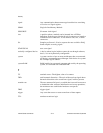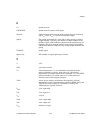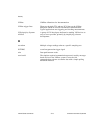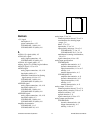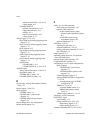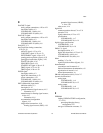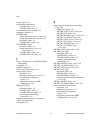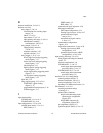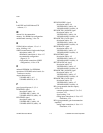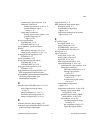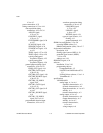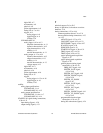
Index
VXI-MIO Series User Manual I -2
National Instruments Corporation
transfer characteristics, A-5 to A-6
voltage output, A-6
VXI-MIO-64XE-10
dynamic characteristics, A-13
output characteristics, A-13
stability, A-14
transfer characteristics, A-13
voltage output, A-13
analog trigger, 3-11 to 3-14
above-high-level analog triggering mode
(figure), 3-13
below-low-level analog triggering mode
(figure), 3-12
block diagram, 3-12
high-hysteresis analog triggering mode
(figure), 3-13
inside-region analog triggering mode
(figure), 3-13
low-hysteresis analog triggering mode
(figure), 3-14
specifications
VXI-MIO-64E-1, A-8
VXI-MIO-64XE-10, A-15 to A-16
AOGND signal
analog output connections, 4-20 to 4-21
description (table), 4-3
VXI-MIO-64E-1 (table), 4-6
VXI-MIO-64XE-10 (table), 4-8
B
bipolar input, mixing with unipolar channels
(note), 3-5
bipolar output, 3-10 to 3-11
block diagrams
VXI-MIO series, 3-2
VXI-MIO-64E-1 parts locator
diagram, 2-3
VXI-MIO-64XE-10 parts locator
diagram, 2-4
board configuration.
See
configuration.
bulletin board support, D-1
C
cables.
See also
I/O connectors
.
field wiring considerations, 4-45
optional cable connectors
68-pin extended analog input
connector pin assignments (figure),
B-3
68-pin MIO connector pin
assignments (figure), B-2
optional equipment, 1-6
calibration, 5-1 to 5-3
adjusting for gain error, 5-3
external calibration, 5-2 to 5-3
loading calibration constants, 5-1 to 5-2
self-calibration, 5-2
charge injection, 3-9
commonly asked questions.
See
questions
about VXI-MIO series.
common-mode signal rejection, 4-20
ComponentWorks software, 1-2
configuration.
See also
input configurations.
block diagrams
VXI-MIO-64E-1 parts locator
diagram, 2-3
VXI-MIO-64XE-10 parts locator
diagram, 2-4
common questions about, C-2
loading USER/FACTORY configuration,
2-7 to 2-8
protecting/changing FACTORY
configuration, 2-8
SIMM size, 2-5 to 2-6
accessing SIMM sockets, 2-6
DRAM configuration (table),
2-6 to 2-7
VXIbus logical address, 2-1 to 2-2
connectors.
See
I/O connectors.
CONVERT* signal
signal routing, 3-15
timing connections, 4-32 to 4-33
input timing (figure), 4-32
output timing (figure), 4-33
customer communication,
xiv
, D-1 to D-2



